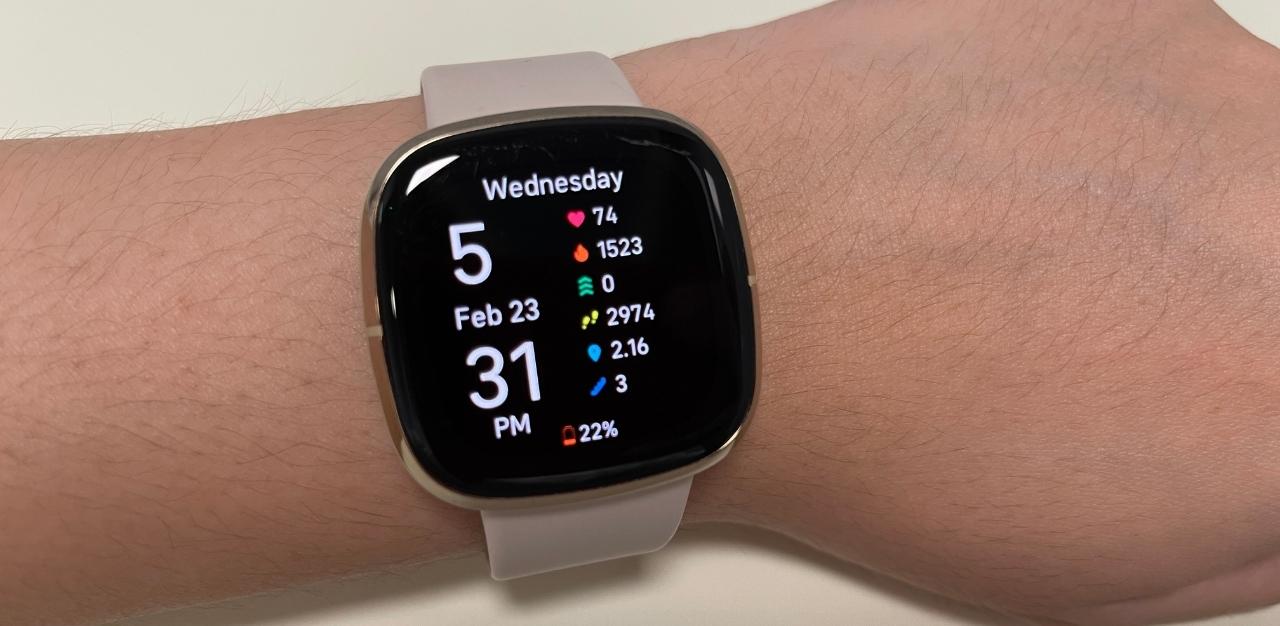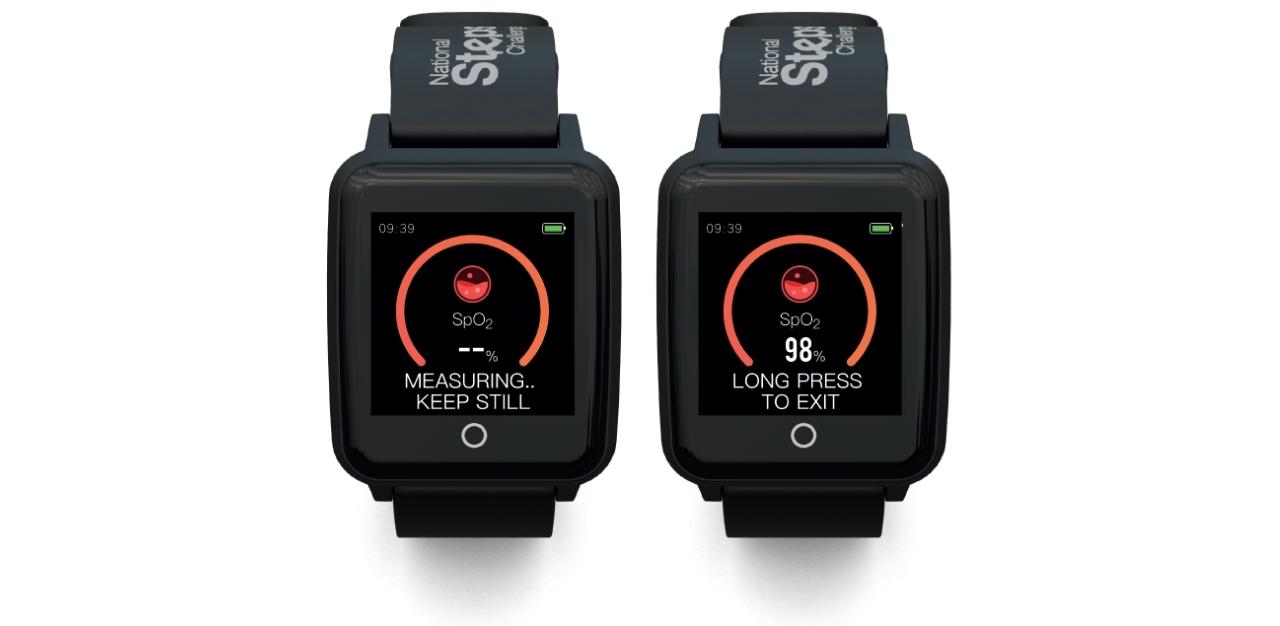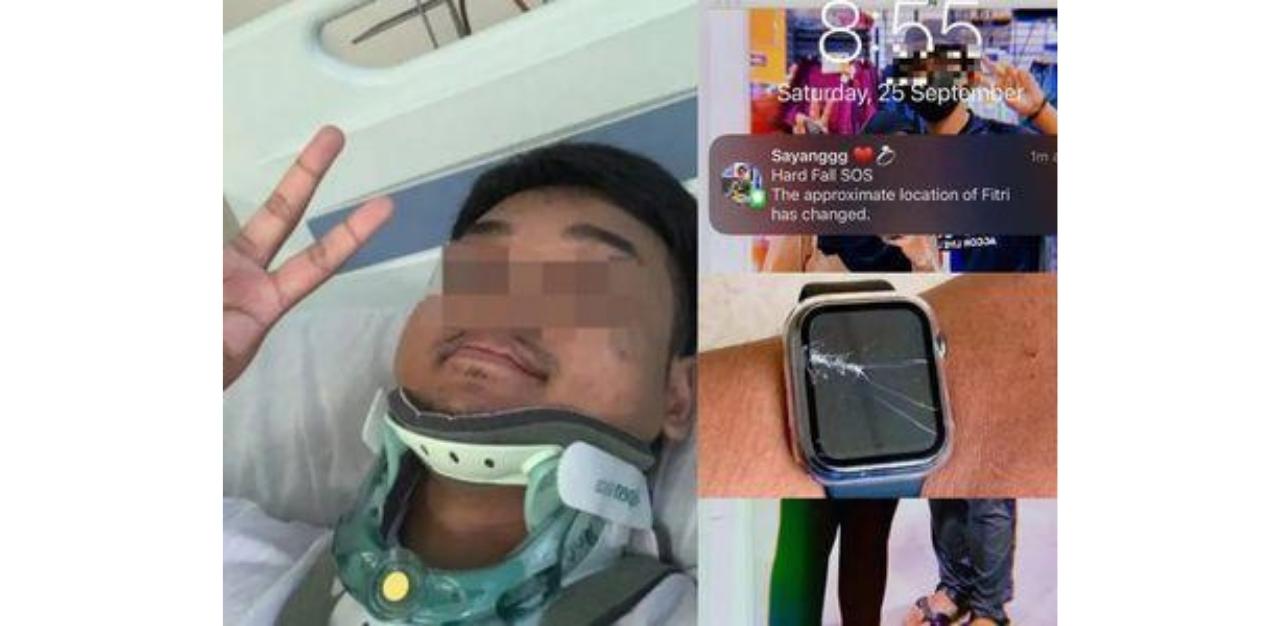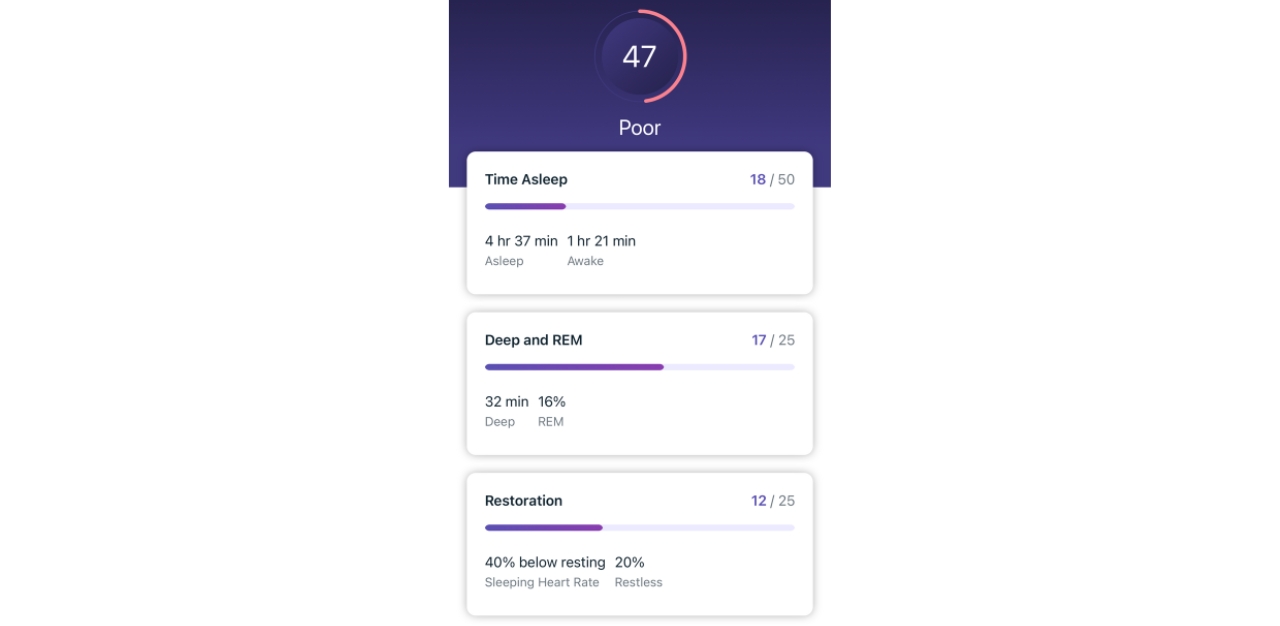When marine industry professional Yi Jie started wearing a fitness tracker, he thought it was simply a “really cool tool” for charting his runs.
“It felt like I was being kept informed of my activities and it helped me gain control over my health and fitness,” he says.
Slowly but surely, the 30-year-old started tracking everything —calories, blood pressure, fertility — and noticed the habit spiralling out of control.
“As time went by, I felt the incessant need to be in active control of all my vitals, leading to an unhealthy obsession with all the quantitative data that I was being fed with”, he adds.
In today’s culture where wellness junkies use apps, websites and wearables to monitor every morsel that passes their lips, every step they take, every beat of their hearts, their sleep cycles, and their fitness progress, they have health insights we have never had before.

And this information overload is not being helped when the Singapore government, concerned with the fact that Singaporeans are living longer lives, are also getting into the act.
A Ministry of Health study in 2017 revealed that Singaporeans topped the list for life expectancy globally at 84.8 years, dethroning long-time champion Japan at 84.1 years.
Although Singaporeans performed similarly well for healthy life expectancy – an average of 74.2 years of good health – it also means that Singaporeans spend the last decade of their lives in poor health.
With the rising incidence of obesity and chronic diseases such as diabetes, the Health Promotion Board (HPB) introduced several programmes to help Singaporeans adopt a healthier lifestyle, including the National Steps Challenge in 2015 to empower Singaporeans to take responsibility for their health and wellbeing.
The annual programme, which is currently in its sixth season, tracks the number of steps taken by participants using fitness trackers that are given out to all eligible individuals free.

At first, the participation rate was lower than expected, resulting in an Auditor-General’s Office (AGO) report on 22 July 2021 revealing that the HPB had wasted public funds with more than 340,000 fitness trackers worth in excess of $5 million uncollected and kept in poor conditions.
A spokesman from HPB later explained to mainstream media that it was “a result of over-estimation of demand”.
Since then, the situation has quickly reversed in course with the HPB announcing last December that an “unanticipated surge in interest in the National Steps Challenge” has led to a shortage of fitness trackers.
Apart from the National Steps Challenge, the Government has also partnered technology company Apple in 2021 to roll out the LumiHealth programme to improve people’s health and wellness more holistically by going beyond physical activity to encompass one’s mental wellbeing, sleep, nutrition, preventive screen, vaccinations and regular updates on managing through the Covid-19 pandemic.
Over the years, fitness trackers have become more powerful, with each generation gaining more functions such as measuring blood oxygen levels, sleep quality, stress levels, electrocardiogram (ECG), and even fall detection.
These new functions have been beneficial to users, from improving their physical and mental health, even to the extent of saving lives.
The Good
It was reported in the Straits Times in January that the use of wearables and reward mechanics has been effective in motivating people to adopt healthier behaviours.
The number of seniors aged 60 and above clocking more than 10,000 steps a day increased nearly 35 times from Season 1 to Season 5 of the challenge.
Walking 7,500 to 10,000 steps daily produces significant health benefits such as lowering high blood pressure and blood cholesterol level, while also improving glucose control. Engaging in moderate-to-vigorous intensity physical activity (MVPA) also lowers one’s risk of cardiovascular diseases and depression.
The Apple Watch has been instrumental in helping to improve the mental health of writer and marketing professional Faz Gaffa, by providing timely prompts to do breathing exercises to reduce her stress levels. “As a working parent, I juggle multiple projects at a time, so LumiHealth provides me with helpful reminders to keep my health in check,” Ms Gaffa said.
When it comes to literally saving lives, the smartwatch from Apple recently hit the headlines for saving the life of Mr Muhammed Fitri, a biker who was knocked down by a van.
The impact of the collision was so strong that Mr Fitri lost consciousness and suffered serious injuries. In the subsequent minutes that followed, no one came to his rescue as the street was relatively deserted at the time.
Fortunately for him, his Apple Watch detected the impact and had contacted emergency services, informing them of the accident and providing his precise location.
The Singapore Civil Defence Force managed to locate Mr Fitri and sent him to Khoo Teck Puat Hospital for treatment, avoiding an outcome that could have turned out very differently.

The Bad and the Ugly
Yet, receiving more information from our fitness trackers about our vitals such as steps taken, heart rates and sleep quality affects us negatively.
While quantifying our vitals helps us to better understand our physical and mental health, it can also give rise to anxiety.
In 2015, researchers at Duke University in North Carolina found that activity-tracking can decrease enjoyment of whatever pastime someone is trying to quantify, and even lead people to do less of it when the trackers are off.
A 2017 study, published in the journal Eating Behaviors, also found associations between the use of calorie-counting and/or fitness-tracking devices and eating disorder symptoms among college students.
A 2016 survey of female Fitbit users found that almost 3 in 5 felt like their days were controlled by their devices, and 3 in 10 said the gadget was an “enemy” that made them feel guilty.
And according to a new study published in the Journal of Medical Internet Research (JMIR) that examined the experiences of 27 heart patients who used fitness trackers to measure their sleep, heart rates and physical activity, it is found that self-measuring does come with a downside.
“Is my heart beating slightly fast? Is a heart attack coming? I didn’t sleep as much as I thought I had last night – is that bad for my heart? Health apps and fitness watches can shed considerable light on how our bodies work and make recommendations for a healthy lifestyle”, are questions that arise, said Assistant Professor Tariq Osman Andersen from the University of Copenhagen’s Department of Computer Science and one of the researchers behind the study.
“Although the 28- to 74-year-old heart patients learned more about their illnesses and were motivated to exercise during the six months that they wore the watches, they also became more anxious. Our study shows that, overall, self-measurements are more problematic than beneficial when it comes to the patient experience. Patients begin to use the information from their Fitbits just as they would use a doctor. However, they don’t get help interpreting their watch data. This makes them unnecessarily anxious, or they may learn something that is far from reality,” Prof Andersen explains.
An extreme case was when a woman conducted over 900 ECGs on herself in a single year.
Dr Lindsey Rosman, an assistant professor of medicine from the University of North Carolina, says that “the patient isn’t an outlier, and that patients with underlying arrhythmias, heart palpitations, or irregular heartbeats were coming into clinic with literally stacks of papers with data from their smartwatches”.
“This can also strain the relationships between doctors and patients: patients might feel like they’re having a problem, but their doctor may not see a need to change their treatment. “There’d be a discrepancy between what patients and families are experiencing and think is dangerous, and what the healthcare providers are doing,” Prof Rosman adds.
Ms Julie Yeo, an accountant in her late twenties, says that the vitals overload has only made her more anxious than before she started wearing her fitness tracker.
“At first, I really liked having detailed information about my sleep quality. However, as time went by, I became paranoid from the “poor” sleep results that my tracker provides me whenever I decided to stay up later into the night and ended up getting less than the ideal eight hours of sleep. I started googling about the effects of poor sleep and it led me down the rabbit hole of cardiovascular diseases and brain damage. Ironically, the anxiety actually caused me to be unable to fall into deep sleep, further producing more poor sleep scores”, she adds.
“In the end, I decided to not wear my tracker to sleep and just use it to monitor my activity levels instead”, Yeo says.

Julie admits to being a hypochondriac — one who is abnormally anxious about their health—and that negative information about her vitals has only exacerbated her worries that her health might take a turn for the worse.
With the pandemic raising people’s anxieties of getting infected with Covid-19, less than ideal information about one’s health might further intensify such fears and prompt people to flood healthcare facilities for checks when it is already under strain from the Omicron variant.
There is also the issue of privacy.
Health data collected from users are very personal as they include weight, blood pressure, activity levels, heart function, menstrual cycle, and sleep patterns, while also monitoring users’ locations.
This data is sent to wearable companies, which may be vulnerable to data breaches. A major incident was the 2018 data breach of Under Armour’s MyFitnessPal user accounts. Another incident that occurred in the same year was when an Australian college student exposed a security flaw in the fitness app Strava, which revealed highly sensitive information, such as the location of US military bases in war zones around the world.
Most fitness trackers connect to their users’ phones via Bluetooth to process and store the collected data. This unsecured connection could allow hackers to access private information.
Although it sounds like a plot for science fiction movies, computer science Professor Wang from Binghamton University said that the hackers can exploit the trajectories of users’ hand movement to recover passwords for ATM cards or electronic door locks.
At the end of the day, users should be in control of how they would like to use the information from the trackers to lead healthier, less stressful lives without having to worry about the issue of privacy.
Join the conversations on TheHomeGround Asia’s Facebook and Instagram, and get the latest updates via Telegram.














